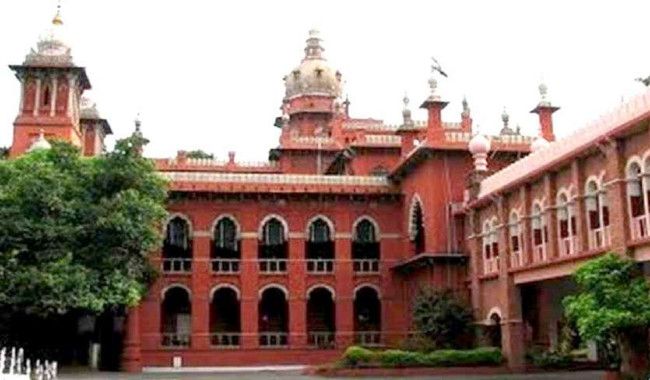Sanatana Dharma is set of eternal duties, destroying it means destroying duties : Madras High Court

Chennai – Sanatana Dharma is a set of eternal duties. It includes duties towards the Nation, the King, the parents, the Guru, and the poor, as well as other duties. While hearing the petition, the Madras High Court ruled that the destruction of Sanatana Dharma is equivalent to the destruction of eternal duties. Elangovan filed the petition, challenging the circular issued by the Principal of Thiruvarur District Government Arts College. In it, students were asked to present their views on the theme ‘Opposition to Sanatana’ on the birth anniversary of former Tamil Nadu Chief Minister and founder of the DMK party, Annadurai. In response to opposition, the Principal withdrew the circular. As a result, the Court dismissed the petition.
While ruling Justice Seshasayee said in the order passed;
“This Court is conscious to the very vociferous, and at time noisy debates on pro and anti-Sanatana Dharma. It has also broadly understood Sanatana Dharama as a set of ‘eternal duties’, and that it cannot be traced to one specific literature, but has to be gathered from multiple sources which, either relate to Hinduism, or which those who practice the Hindu way of life, have come to accept. It includes the duty to the Nation, duty to the King, the King’s duty to his people, duty to one’s parents and Gurus, care for the poor, and whole lot of other duties. If the topic chosen by the impugned circular is now tested on the plane of these duties, it would then mean that all these duties are liable to be destroyed. Should not a citizen love his country ? Is he not duty bound to serve his Nation ? Should not the parents be cared for ? With genuine concern for what is going round, this Court could not help pondering over it.”
“Somewhere, an idea appears to have gained ground that Sanatana Dharma is all about, and only about, promoting casteism and untouchability. Untouchability in a country of equal citizens, cannot be tolerated, and even if it is seen as permitted somewhere within the principles of ‘Sanatana Dharma’, it still cannot be given any place today, since Article 17 of the Constitution has declared that untouchability has been abolished.”